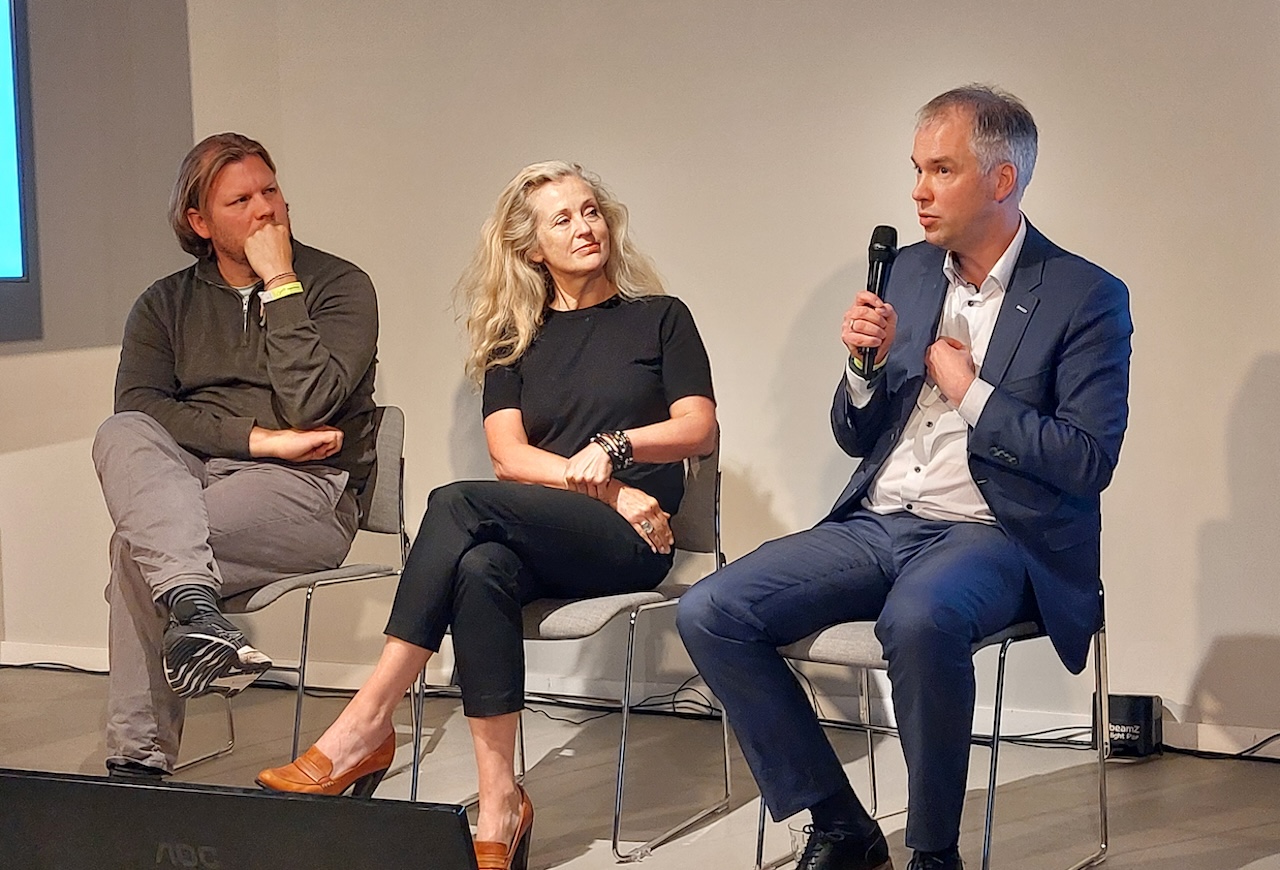Can you trust investors who buy an impact-driven company to safeguard that mission? Social entrepreneur and impact investor Willemijn Verloop explained why she thinks you can’t, speaking at Impact Europe’s event in The Hague this week.

“I believe investors cannot be stewards of an impact mission because they have a financial incentive,” Willemijn Verloop, a founding partner of Rubio Impact Ventures and supervisory board member of the idealistic chocolate maker Tony’s Chocolonely, told the audience at The Business of Impact and Capital Ideas event, organised by Impact Europe in The Hague this week.
Once they acquire a firm, investors have a strong incentive to renege on previous impact pledges to cut costs and increase profit margins, according to Verloop. “For example, they can decide to no longer pay a living wage to farmers or other workers in their supply chain,” she said.
Therefore, it is vital to vet potential investors or buyers in a company and make them sign up to the impact a company wants to make, Verloop noted, during a panel discussion on governance models.
“Impact is always an important element in choosing who to sell your company to.” She gave an example of the Dutch firm Good Fuels, a producer of sustainable fuels that her firm Rubio invested in. “Because of the industry this company was active in, there was a high risk that the buyer would use it for the wrong purpose (i.e. greenwashing). In the end, the eventual buyers pledged to continue to report voluntarily on the impact targets we had set at the company earlier.”
Tony’s Chocolonely
Another way to safeguard a firm’s impact mission is to introduce a golden vote, to make sure the corporate mission of a company cannot be violated. This is what happened at Tony’s Chocolonely’s, a Dutch chocolate maker that promises to pay a fair living wage to smallholder cocoa farmers in Africa, when a majority stake in the firm was sold to a Belgian investment firm last year.
“We introduced a golden vote for an independent foundation which could block decisions deemed to violate the company’s impact mission,” said Verloop. “First, we would note in the firm’s annual report that the company’s management is doing something that goes against its impact mission. If they don’t listen, we will place media advertisements in all 17 countries where Tony Chocolonely’s chocolate is sold. If that still doesn’t work, we can go to court.”
However, such protection measures are not always necessary as the financial incentives of investors are often aligned with a company’s impact mission, according to Frank Wagemans, an engagement specialist at pension asset manager Achmea Investment Management, also speaking at the panel.
“The interests of investors and founders or management can also overlap,” said Wagemans, who also took part in a panel discussion on the topic. “To take the case of Tony’s Chocolonely: if they had not focused so much on making impact, they would never have become so big. It’s in the interest of shareholders to preserve the company’s impact mission. If Tony’s was to be perceived as just another chocolate maker, they could never compete with for example Nestlé which can produce cheaper because it’s much bigger.”






